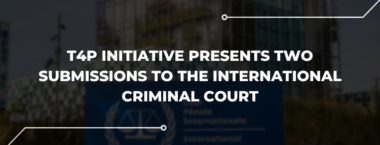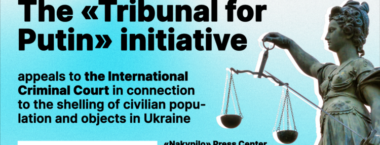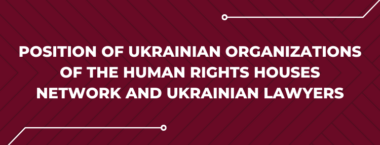
Torments, Torture Chambers, Executions: T4P Initiative Presents Two Submissions to the International Criminal Court
Information about extrajudicial executions of Ukrainians by the Russian military and Russian torture chambers in...
28 September 2023
20.04.2018
Developments and findings of USAID Human Rights in Action Program have been used by the Ukrainian Helsinki Human Rights Union experts, who took part in the development of the “shadow” report. This document, among other papers, became a basis for the Parliamentary Association Committee’s final statement and recommendations pursuant to Article 467(3) of the EU-Ukraine Association Agreement.
Almost all our proposals on addressing conflict-generated challenges were considered in the adopted document in course of the 7th Meeting held in Strasbourg on 18-19 April 2018 to discuss Ukraine’s progress and bilateral relations as well as to provide input to and oversight of the EU policy on Ukraine.
Program inputs, being a part of USAID-supported transitional justice model, are displayed under section “On the overall security and humanitarian situation” – in particular, on support of Ukraine’s sovereignty and territorial integrity, condemnation of illegal annexation of Crimea and occupation of some regions of the Donetsk and Luhansk oblasts by Russia and stressing its responsibility for committed violations; consistent actions needed to be taken by the EU to end of the conflict and peacefully reintegrate the occupied territories; necessity to develop consolidated state policy on protected persons, based on the Geneva and Hague conventions; call for additional efforts by the GOU to alleviate the suffering of the affected population, incl. facilitate access to pensions, social benefits and services for residents of NGCA; deterioration of ecological situation in the East of Ukraine as a consequence of Kremlin’s military aggression; absence of international format of negotiations on de-occupation of the Crimean peninsula; political persecution of Ukrainian citizens, illegally detained in Russia and the occupied Crimea, and calling for their immediate release; prolongation of existing sanctions against RF along with imposing additional ones in the light of these further violations of international law and fundamental rights and freedoms; encouraging the GOU to ease administrative procedures for Crimeans – grant equal access to social, bank and notary services, simplify the border-crossing procedure, change the registration procedure of births and deaths, improve the system for passports issue/change; importance to oppose Russia’s fake news and propaganda; to comply with its obligations under the international humanitarian law in respect of the protected person, and start maintaining records of the detainees, the missing and other persons; to develop and approve a strategy which will define, based on the Geneva and Hague conventions, a consolidated state policy in respect of persons who have a status of “protected” under international humanitarian law, harmonization and coordination of actions of all state organs, taking into account the world practice of post-conflict resolution)
And in the “On the reform process” section – in particular, regarding importance of fulfilment of the National Human Rights Strategy and its Action Plan by the GOU; documentation and effective investigations of war crimes in cooperation with human rights organizations; full respect of freedom of expression and information; eradication of violence against women and combatting impunity; full ratification of the Rome Statute of the International Criminal Court.
We would like to thank EU-Ukraine Parliamentary Association Committee members for fruitful cooperation and efforts undertaken to develop the statement and recommendations. Our special thanks are extended to the Co-Chair of EU-Ukraine Parliamentary Association Committee Mykola Kniazhytskyi.
Let us remind that on April 18, the Program introduced the draft law “On fundamentals of public policy on human rights protection in the context of addressing the consequences of the armed conflict” (being an integral element of the mentioned transitional justice model) at the hearings of the Ukraine’s Verkhovna Rada Human Rights Committee on the implementation of the National Human Rights Strategy as part of the parliamentary oversight in this process.
Text by Maxim Petrov (UHHRU)
If you find an error on our site, please select the incorrect text and press ctrl-enter.

Information about extrajudicial executions of Ukrainians by the Russian military and Russian torture chambers in...
28 September 2023

Since the onset of the full-scale invasion, the «Tribunal for Putin» initiative has recorded about...
18 August 2023

Position of Ukrainian organizations of the Human Rights Houses Network and Ukrainian lawyers on the...
17 July 2023

On June 6, 2023, the Southern Area Military Court of Rostov-na-Donu sentenced Mr.Bohdan Ziza, a...
08 June 2023